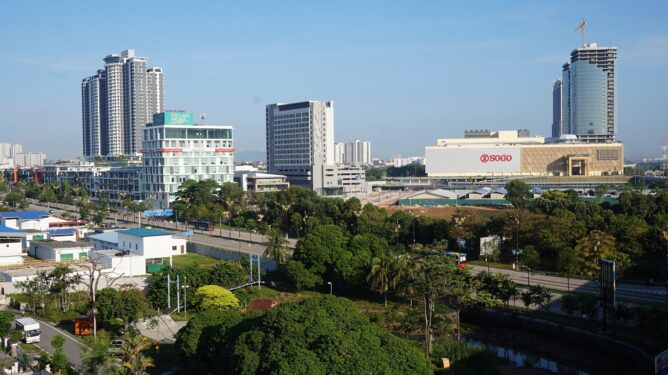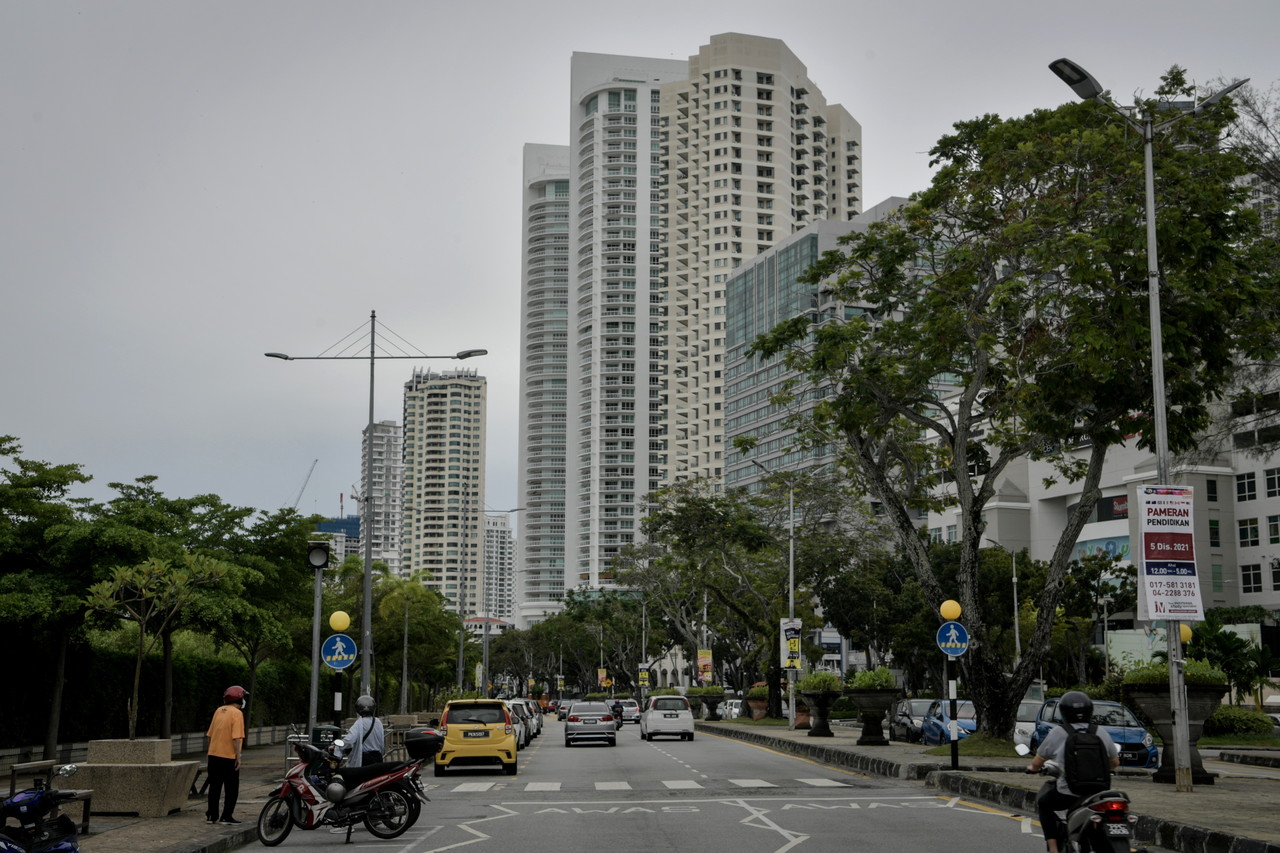TWO weeks ago, I presented a checklist to our Housing and Local Government Datuk Seri Reezal Merican Naina Merican in my article entitled, “If I were the Housing Minister…”
I have received positive feedback from my fellow volunteers, friends of House Buyers Association (HBA), industry players, stakeholders, civil servants, politicians from both sides of the divide and housing developers (of the decent and responsible variety).
I was reminded by them that there are other issues which are critical and should form part of the minister agenda in the future. Thus, I was inspired to continue my narrative in this Part 2 on areas which needs revisiting.
1. “Rein in” and regulate Liquidator’s conduct and fees
One of the amendments to the Housing Development (Control & Licensing) Act, 1966 (Act 118) (“HDA”) which took effect on June 1, 201, namely Section 3 of the Interpretation extends the definition of “housing developer” to include “a person or body appointed by a court of competent jurisdiction to be the provisional liquidator or liquidator for the housing developer”.
The amendment to include a liquidator as a “housing developer” was intended to fill the void when a developer is wound up before completion of its duties.
As a result of the amendment, a liquidator will be subjected to the duties imposed by Act 118 and may be liable for breaching duties of a “de facto housing developer”.
In theory, a liquidator should not be allowed to charge or impose any administrative fee when carrying out his duties (since he is assuming the affairs and responsibility of the defunct developer) contracted in the sale and purchase agreement.
For example, functions such as updating the record of ownership and perfecting the transfer to a purchaser when a separate individual or separate title is issued is part and parcel of a developer’s duty, issuing written confirmation of particulars (for sub-sale) under the HDA.
The reality is that liquidators who are appointed to manage the affairs of a defunct developer are charging a purported administration fee of between 2% – 3% of the purchase price for these functions. There are no guidelines to regulate charges by liquidators. The purchaser has no choice in the appointment and is left to a game of chance.
The purchaser is at the mercy of the appointed liquidator where each liquidator is like a “little Napoléon”. The irony is that Section 22D of the HDA clearly states that a fee of not exceeding RM50 may be imposed for a written confirmation of the record of the beneficial owner of the property in the housing development and consent for the assignment.
Why then are liquidators granted special treatment by having their charges grossly inflated from RM50 to 2% – 3% of the purchase price?
2. Maintain “No” to DIBS for first-time house buyers
Every now and then, some quarters will accept developers’ mantra to re-introduce the Developers Interest Bearing Scheme (DIBS). It should be noted that Bank Negara Malaysia had prohibited and outlawed “any form of interest capitalisation scheme”.
DIBS or any other permutation similarly “schemed” cannot be allowed to re-surface because it risks creating a property bubble as prices are artificially increased and in turn, such increase creates a snowball effect of driving prices upwards creating an unrealistic demand.
It indirectly encourages speculation as it creates an easy entry to purchase without taking into account the purchaser’s ability to sustain the loan through good and bad economic cycles.
Whatever the economic situation, the basic facts of DIBS are the same and made worse by the economic situation – it involves developer advancing the expenses of construction and other expenses which are to be collected later as debt from the purchaser with interest element factored in and therefore making the property more expensive.
False Market: The DIBS had created a false demand, which in turn, pushed up property prices making houses unaffordable to the average person.
3. The banishment of the “oppressive nn-Bloc strata sales”
It seems that the Energy and Natural Resources Ministry (NRE) was and currently exploring new ways, including changes in legislation, under the pretext of facilitating strata property renewals or redevelopments in Malaysia. They wish to introduce an “en-bloc strata sale” mechanism for stratified properties.
HBA is opposed to it as we believe that it is a mere facade to hide the true intention of overriding or eroding a host of other legislations currently in place to safeguard the fundamental rights to property owners. The said legislations include Land Acquisition Act 1960, the National Land Code, the Federal Constitution (right to own property), Strata Management Act, 2013 and Strata Titles Act 1985.

4. Private Lease Scheme (PLS)- “Scheming” the naive & unwary buyers
The NRE was seeking to amend the National Land Code, 1965 (NLC) by the introduction of a new proposed Chapter identified as “Register of Private Lease”.
In a nutshell, future home buyers may find themselves “renting” in perpetuity if the proposed private lease scheme makes its way into the NLC. The new chapter into NLC, would allow landowners (private corporations) to lease out their freehold land for development under a Private Lease Scheme (PLS).
Note that the term “leasehold property” is commonly used in Malaysia and refers to State lease. This type of leasehold land is owned by State authorities, who have a moral obligation to renew the lease upon expiry.
In a PLS, the land for development is a freehold property and is owned by a private corporation. The land owner/ private corporation will let lease the land to a developer for a period of say, 30 years or 60 years or 99 years with the rights given to the developer to develop and construct landed/ stratified properties for sale to the public. The pertinent question is what is being sold to the public?
Under PLS, the sale and purchase agreement (SPA) signed by the purchaser and the developer is not for the sale of the property, but for the sale of a lease over the landed or strata parcel. This effectively makes the purchaser a lessee of the property, and not the owner of the property, as assumed by most buyers in general.
The current NLC does not allow for leases to be created for more than one person but the proposed PLS will contradict this provision.
Most property purchasers are unaware of the implications of purchasing under a PLS and would assume that they are buying a leasehold property under the State government, which is not the case. It is disastrous to equate PLS to leasehold land.
We believe that this new class of real estate ownership should be rejected: it differs from our existing culture of titled system of ownership as there is no safeguard of ownership to buyers and HBA objects to such deceiving schemes.
Unfortunately, the die is cast for certain developments in Johor who have used PLS, though the laws are not in place. To minimise the damage done, there should be special legislations for certain gazetted economic zones like Medini, Johor with proper safeguards for the buyers. It cannot be allowed to be applied nationwide as it would “open a new can of worms”.
This PLS scheme issue is currently subject of a court case at the Court of Appeal stage where HBA team of pro bono lawyers are involved.
5. Delete Housing Development Regulation (HDR) 11(3)- EOT abuse
At the stroke of a pen, compensation payable to a group of aggrieved house buyers are taken away by the then-minister and his Controller of Housing (the past Government).
Between 2014 to July 2019, a total of 536 projects were granted “extensions of time” (EOT) by the Minister and his Controller of Housing, which prohibited house buyers from seeking compensation in the case that their house completion is delayed. A house buyer typically can get compensation of 10% of the purchase price, if the developers exceed the mandatory 36-month timeframe.
The then-minister and his Controller of Housing obliges them under HD Regulation 11 (3) by granting housing developers an EOT (some between six month and 24 months). With the EOT, compensation for late delivery is waived. Is it right for the minister to exercise this discretion in stealth as home buyers are usually not consulted prior to such applications for EOT, without any valid basis and obviously, at the disadvantage of home buyers?
In the decision of the Federal Court on Nov 26, 2019, in Ang Ming Lee & Ors vs Menteri Kesejahteraan Bandar, Perumahan dan Kerajaan Tempatan & Anor and other appeals (2020) 1 CLJ 162, the Apex Court has effectively put to rest the unbridled attempts by the then Housing Minister/s and those under their charge to extend the “handover deadline” from the mandatory 36 months to 48/ 54/ 60 months. The lengthy litigation process was undertaken by HBA team of pro bono lawyers and was a victory for all house buyers.
We have been alerted that there are recent objectives to circumvent the Federal Court decision by invoking a different provision in the Housing legislation to replicate the same action. Perhaps, house buyers need to make another trip to the courts to rectify the injustice via a civil suit for acting in contempt of court.
What is happening to the Housing Ministry? The Ministry is supposed to be the authority that many an aggrieved house buyer turns to when a developer defies the law. House buyers rely on them for protection when a housing project gets delayed or abandoned.
This gross abuse of power should be checked under the new Minister’s watch. Any decision which deprives the home buyers of their rights and entitlement should be exercised transparently, strictly and with open communications. Jan 15, 2022
Datuk Chang Kim Loong is the honorary secretary general of the National House Buyers Association (HBA).
The views expressed are solely of the author and do not necessarily reflect those of Focus Malaysia.










